Fahe Annual Meeting 2023 Recap: Day 2
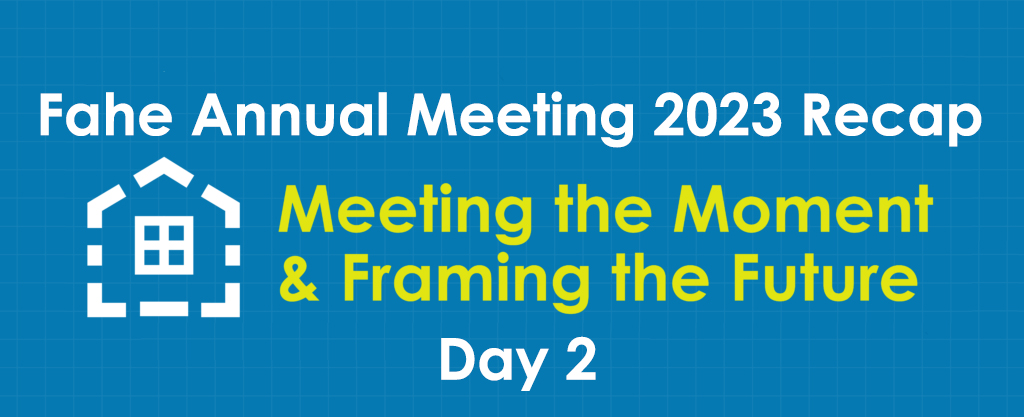
Day 2 Recap
Fahe VP of Research Katy Stigers led a panel discussion entitled “Exploring Housing Needs in Appalachia” with Rebecca Dillow, Clinch-Powell RC&D; Daniel Eades, West Virginia University; and Mel Jones, Virginia Tech Center for Housing Research.
The Members, including leaders like Rebecca Dillow from Clinch-Powell, are learning from one another how to leverage existing information to tell more powerful stories and collaborate to solve common challenges. Everyone agreed they are seeing the benefits of “going farther together” in measurement, evaluation, and research.
“The data we have is not the data we are stuck with. With on the ground input from practitioners we can create the case for how to draw more useful geographic units–instead of tracts–with universities and researchers. This way we can draw conclusions for a bigger population and overcome the many limitations of rural data sampled from small populations.” – Mel Jones
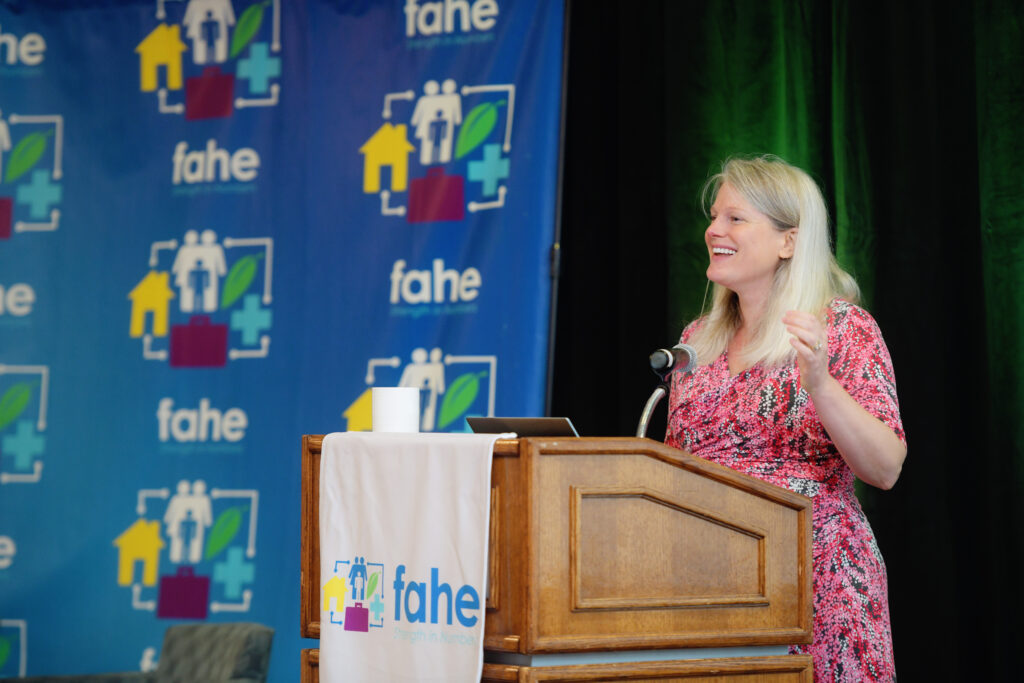
Reflecting on the proportion of the housing stock in Central Appalachia in need of replacements and updates, she added, “Housing is a 100-year commitment. If we condemn substandard housing, where will those residents go? We need to replace deteriorating stock with quality stock and consider the way it is placed and where it is placed.”
Federal Co-Chair of Appalachian Regional Commission Gayle Connelly Manchin spoke of “What’s Possible.”
Manchin considered how interconnected infrastructure is to the vitality of a region.
“The availability of affordable housing, broadband, roadways… all of this affects the quality of life and in turn impacts our ability to retain a critical workforce, like teachers, and provide other vital resources to our region.” -Gayle Conelly Manchin
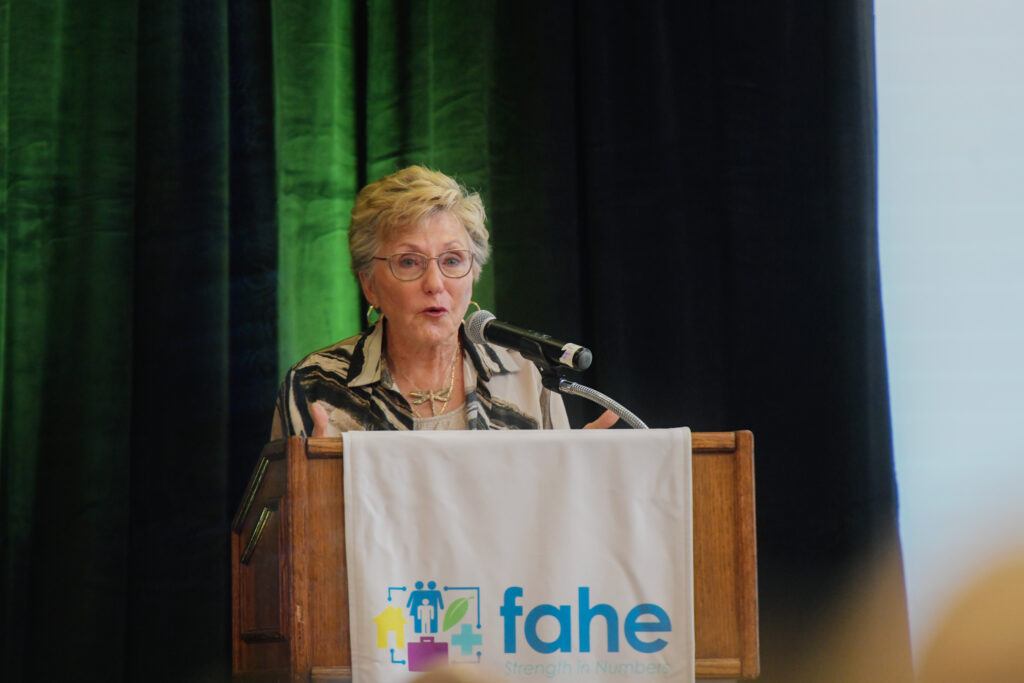
She also spoke of the importance of thinking holistically to overturn stubborn societal issues, saying: “Substance use disorder affects everyone in a community. It is not a singular problem. It takes a community to give a second chance with job recovery and training, to provide a safe place to live, to deliver transportation, and childcare. We need a continuum of services.”
Luke Schaefer, Ph.D. and the Hermann and Amalie Kohn Professor at the University of Michigan is the co-author of a new book The Injustice of Place.
Shaefer shared eye-opening findings from using data, history, and ethnography to identify the mechanisms that impact Appalachia.
“Poverty is about your life chances, the ability to live a healthy life, and it is tied to where you live. When we created an index of deep disadvantage we found that the most disadvantaged populations are predominantly rural.” -Luke Shaefer, Ph.D.
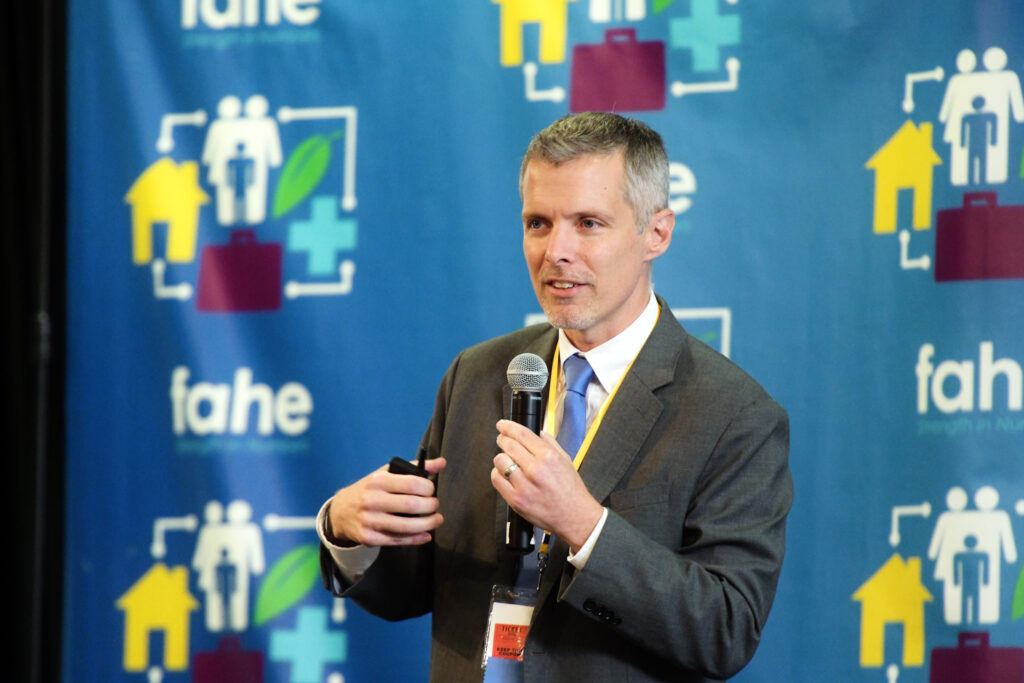
Schaefer continued, “The challenges they face did not come out of thin air.”
He explained, “Places of deep disadvantage are like disconnected internal colonies. …they once had a reliance on a single industry, or very few industries, to drive the labor force and the economy… such as cotton in the South, coal in Appalachia, produce from South Texas.”
“Creating meaningful opportunities for people is one of the most far-reaching activities for improving the quality of life in a community,” said Schaefer. Then, he questioned: “How do rules that are in place perpetuate inequality? Policies work better for people that have more money.” He provided concrete examples, such as disaster recovery.
In a subsequent panel moderated by Katy Stigers, Fahe, entitled “Frame the Future,” the conversation between Luke Shaefer, University of Michigan; Daniel Eades, West Virginia University; Chrystel Cornelius, Oweesta Corporation; and Jim King, Fahe turned to “What is the exact thing that we can do next?”
King said, “We need to be funded in a way that enables systems change over time.”
“Solutions need to come from the people who live in a community. Local needs, local capacity, and local investment are key. Not doing things for people, but with people.” – Daniel Eades
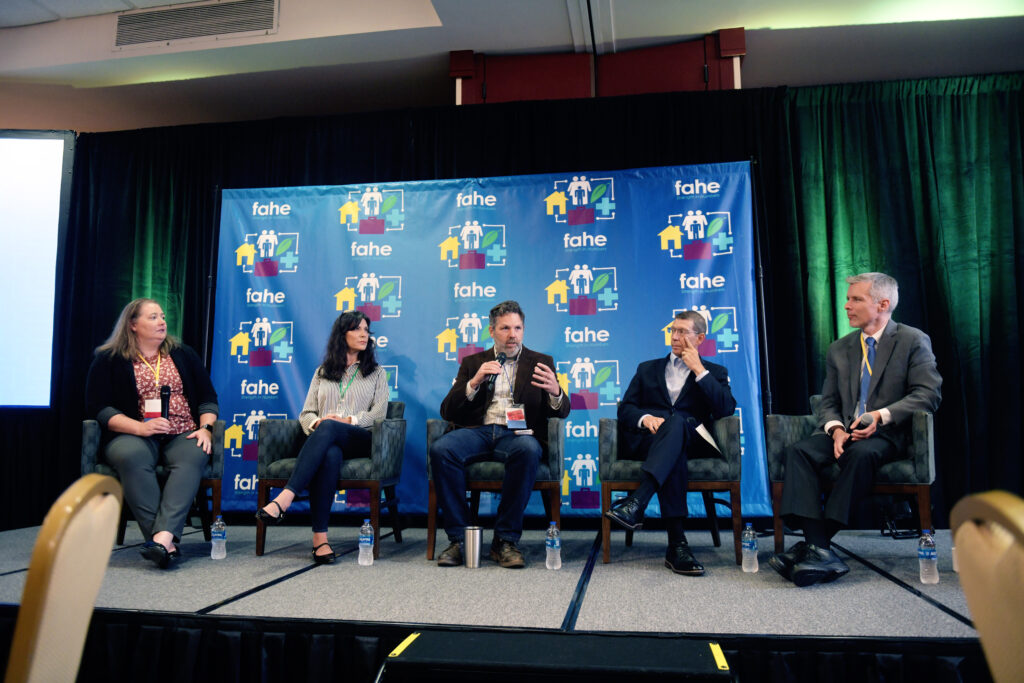
Cornelius reminded us that “Poverty is not a choice. The more people that hear and understand this, the better we will be.”
After lunch, Fahe Vice President of Advocacy Maggie Riden moderated a panel discussed “Elevating Advocacy: Lessons Learned in Kentucky and Tennessee” featured Scott McReynolds, Housing Development Alliance; Rebecca Dillow, Clinch-Powell RC&D; Maria Catron, Oak Ridge Housing Authority; and Fahe’s Senior Vice President of Membership Vonda Poynter. The conversation covered fresh ground and the audience took copious notes. The rest of the day included four breakout sessions and a roundup with the USDA Rural Development team.
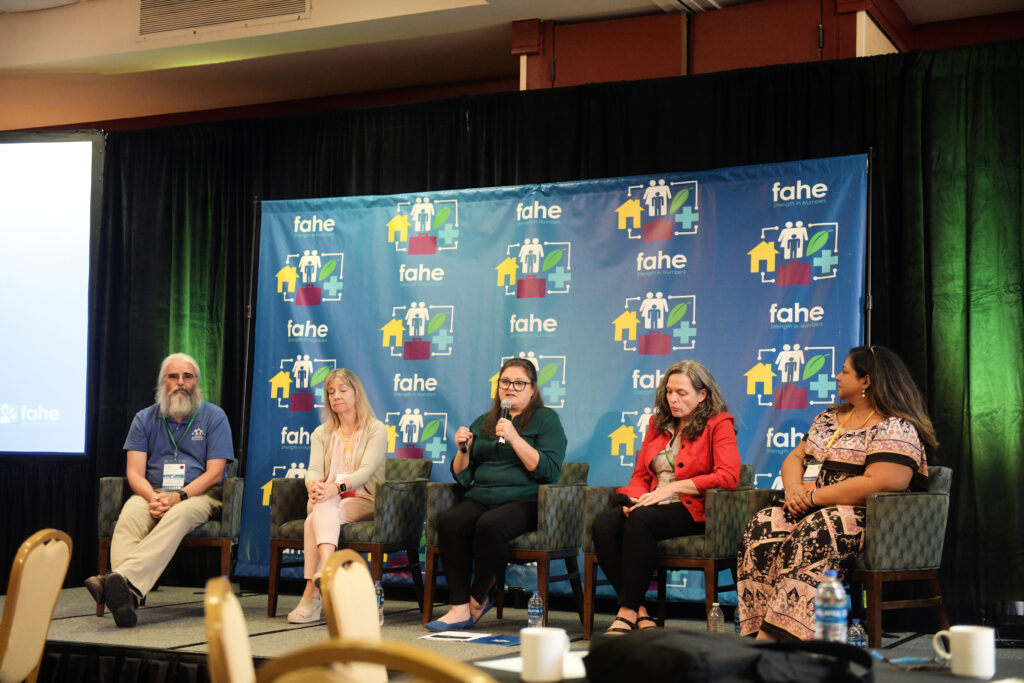
Read the Rest of the Fahe Annual Meeting 2023 Recap
Recap Main Page Day 1 Day 2 Day 3
